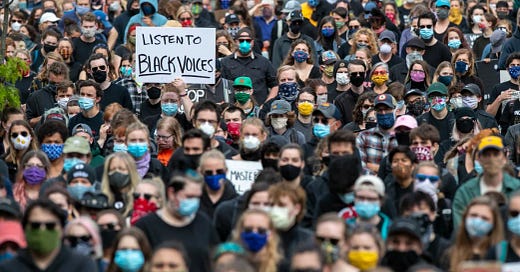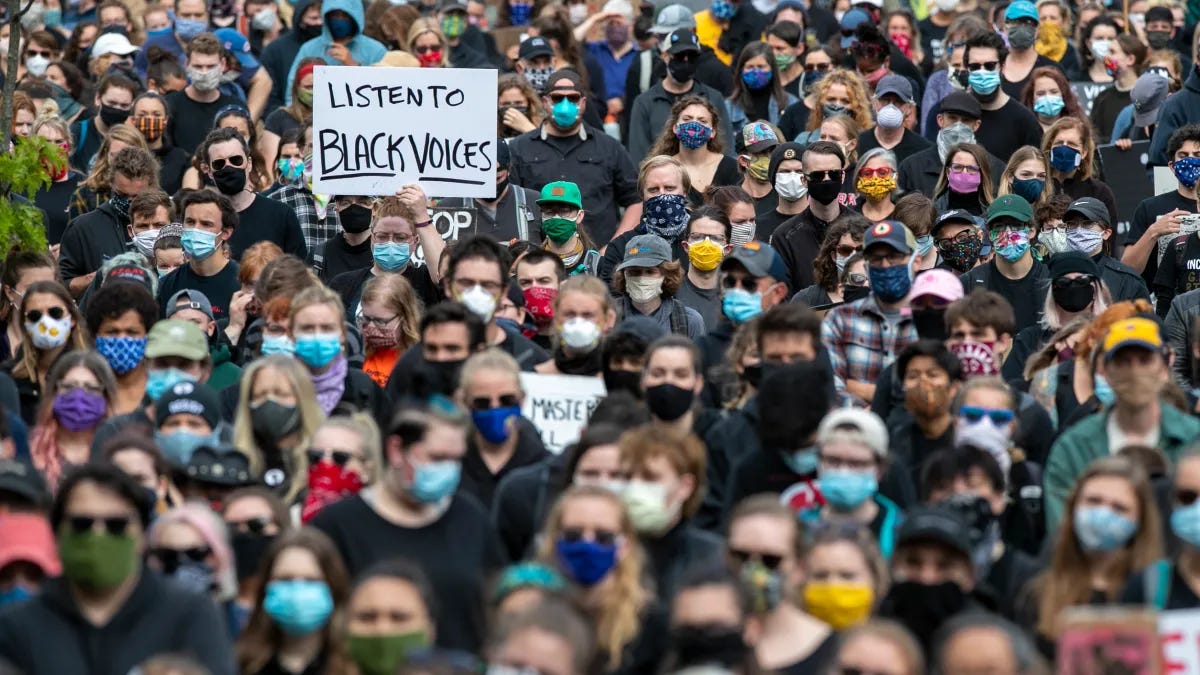In 2022, police in the US killed more people than any other year on record. That record was broken again in 2023. Who knows how 2024 will turn out, but the growing police brutality on college campuses isn’t exactly encouraging. If you want to understand why this is happening, it may be helpful to consider these five unfortunate facts about police.
1: American police were created to re-abduct the Black people who’d freed themselves from slavery.
South Carolina first established slave patrols in 1704, the first organized policing in what would eventually become the United States. Now, some bootlickers will argue that the first “official” police force was established in Boston in 1838. And since Massachusetts had abolished slavery more than 50 years prior, Northern cops were just completely different! They called themselves “police” and were based on some enlightened, race-neutral form of beneficent law and order!
What gets left out of that selective history is that it was a relatively common practice for Northern police of that era to abduct random Black people – free or otherwise – and sell them to Southern enslavers. But, while that is arguably worse, maybe it doesn’t matter nowadays. Times have changed and now police have to serve and protect everyone. Except, I hate to be the one to tell you this, but…
2: Police are not legally obliged to protect you.
Sorry, it’s true. The Supreme Court ruled on it more than once. First in the 1989 DeShaney v. Winnebago County, then, building on that precedent in Town of Castle Rock v. Gonzales in 2005. Even though both of these cases involve brutalizing children, the Court decided that police didn’t have to do anything to protect children from, honestly, things too awful for me to write about here.
While they may not stop crime or prevent crime, at least police are out there solving crimes, right? Well…
3: Police don’t really solve crimes.
Police budgets are going up and clearance rates are going down! According to the most recent FBI data, nationwide, police clear slightly over a third of reported violent crimes and 12.1% of reported property crimes. Those are clearance rates, which means arrests. They don’t have to result in convictions and they don’t account for wrongful arrests or cases being thrown out. This means even the way data are collected masks how ineffectual police actually are. Now consider the fact that police have been caught manipulating those already skewed statistics since they first started being reported in the 1930s.
Even worse, in 2018 it was estimated that as much as one in ten convictions are wrongful. These are all reasons why people only trust police enough to report about half of violent crimes to begin with, but the police had to have earned our trust at some point, right?
4: Propaganda is the only reason the police aren’t viewed as gangsters and imbeciles.
It used to be that the police were largely viewed as various mixtures of incompetent and corrupt. Portrayals of police in popular culture reflected that right up until they started extorting movie studios. Security, permits, keeping the occasional star or exec out of the papers all meant converging interests. Eventually, in the 1950s, shows like Dragnet made police look heroic and valiant. The TV police procedural was born and we’ve never really looked back, no matter how blindingly obvious the continued corruption and incompetence.
For example, last October my home state of Maine experienced the worst mass shooting in its history. Eighteen people were killed and 12 injured. There was a massive manhunt locking down the state for days. Eventually the body of the shooter was discovered, having taken his own life up to 12 hours earlier. To hear the police tell it at the time, the reason for the slow response was careful deliberation and deliberate investigation.
Being propagandized by TV and movies, many believed the police. But then it turned out that the shooter’s body was discovered at his old job. And that police had searched the area twice already, somehow missing the corpse. Also, many had warned the police about the shooter for months – including the shooter himself, telling the police that he was “capable” of this crime. Last week it was reported that not only did the police have next to no idea what they were doing during the manhunt, but local sheriffs were so drunk they almost ran each other over. This is likely because…
5: Cops can’t be too smart.
I’m not trying to be insulting here. I’ve written before about how our two main cultural gauges of intelligence – the IQ test and the SATs – were created by white supremacists for the exclusive purpose of subjugating Black people, so I don’t even really believe in the American concept of intelligence. But many do and according to them, even those very low white supremacist standards can be too demanding for police.
Back in the 1990s a guy named Robert Jordan applied for a job with the New London Police Department in Connecticuit. Jordan was turned down by the New London PD, reason being he’d scored too high on the intelligence test. He thought this was ridiculous, so he sued. Then he lost. Yup. The courts sided with the police themselves in saying that cops can’t be too smart. It’s not a statement about the individuals so much as what the systems allow.
Police were created to protect the property of the wealthy. At that time, the specific property was people. All these centuries later, our incarcerated population is larger than any country on earth, it’s disproportionately Black, it’s a corporate workforce and somehow the wealthy don’t pay taxes. I guess to varying degrees, they’ve made us all their property.
Police will continue to enforce the desires of the wealthy while the rest of us wish for the fantasy of TV and movies. There’ll probably be the occasional attempt at police reform, but historically speaking, at best, that’s always been a little like repurposing rat traps to be flip-flops. Honestly, for now it feels like the best we can hope for is that 2024 not be another record-breaking year.
Here’s a Keystone Cops compilation if you’d like a nice laugh like the good ol’ days.
https://policeviolencereport.org/
https://www.loc.gov/resource/rbpe.06002200/?st=text
https://en.wikipedia.org/wiki/DeShaney_v._Winnebago_County
https://www.pewresearch.org/short-reads/2024/04/24/what-the-data-says-about-crime-in-the-us/
https://www.latimes.com/opinion/op-ed/la-oe-grisham-wrongful-convictions-20180311-story.html
https://www.law.umich.edu/special/exoneration/Documents/NRE%20Annual%20Report%202022.pdf







thanks for the comic relief at the end. oy.